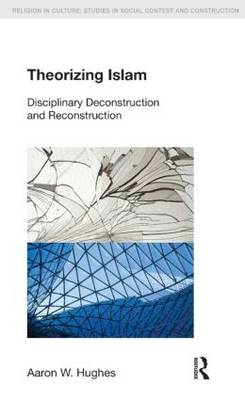Religion in Culture
2 total works
The scholarly study of Islam has become ever more insular and apologetic. Academic Islamic Studies has tried to maintain a focus on truth, authenticity, experience and meaning and has effectively avoided discussion of larger social, cultural and ideological issues. Many scholars of Islam have presented themselves to their colleagues, the media and the public as the interpreters of Islam and have done so with an interpretation which tends, almost universally, to the liberal and egalitarian. The ignorance and hostility which the Islamic faith has faced since 9/11 has partly necessitated the taking of such a position. But, as Theorizing Islam argues, the issue remains that only one interpretation of Islam is generally being presented and, as with any interpretation, this has its own assumptions. The aim of Theorizing Islam is to explore the potential for a fuller, more honest and more sophisticated approach to both theory and methodology in the academic study of Islam.
Scholars of Islam have largely overlooked those discourses within the larger field of Religious Studies that do not take the category religionA" as a given but contend that its study ought to occur within larger social, cultural and ideological structures. Instead, the academic study of Islam has migrated toward the more regnant ecumenical and phenomenological discourses that still largely define the field of Religious Studies, a field that is still interested in adjudicating truth, authenticity, experience and meaning. The result is that the academic study of Islam has become more, not less, insular and apologetic. It is within this context that scholars of Islam have presented themselves to their colleagues, to the media and to the public as the de facto interpreters of Islam. They have largely invoked their authority to elevate their particular and idiosyncratic interpretation of Islam (e.g., liberal and egalitarian) over others and, in the process, deemed their version as somehow more authentic and normative. On one level, given the anger and hostility directed toward Islam and Muslims post-9/11 this is certainly understandable. In this respect, many Islamicists have tried to correct the blatant and often hostile misrepresentations that frequently circulate in the media and public opinion. However, on another level, problems inevitably arise when, to correct such misrepresentations, the only Islam that is presented as normative is the one that they have largely constructed in their own image. This volume seeks to redress such oversights and apologetics. It examines how scholars of Islam working in departments of Religious Studies manufacture such a normative Islam, the rhetorical moves they make, and the often hidden ideological assumptions behind such moves. Yet, rather than just point these shortcomings out, another important feature of these essays is that they are constructive, providing new approaches to the material in question. The end result is a controversial volume that functions as a catalyst for the theoretical and methodological repositioning of the academic study of Islam carried out in departments of Religious Studies.

